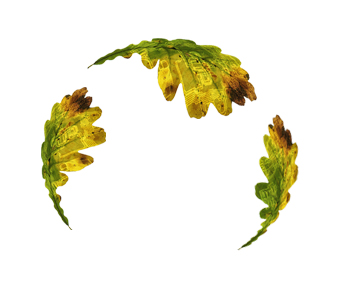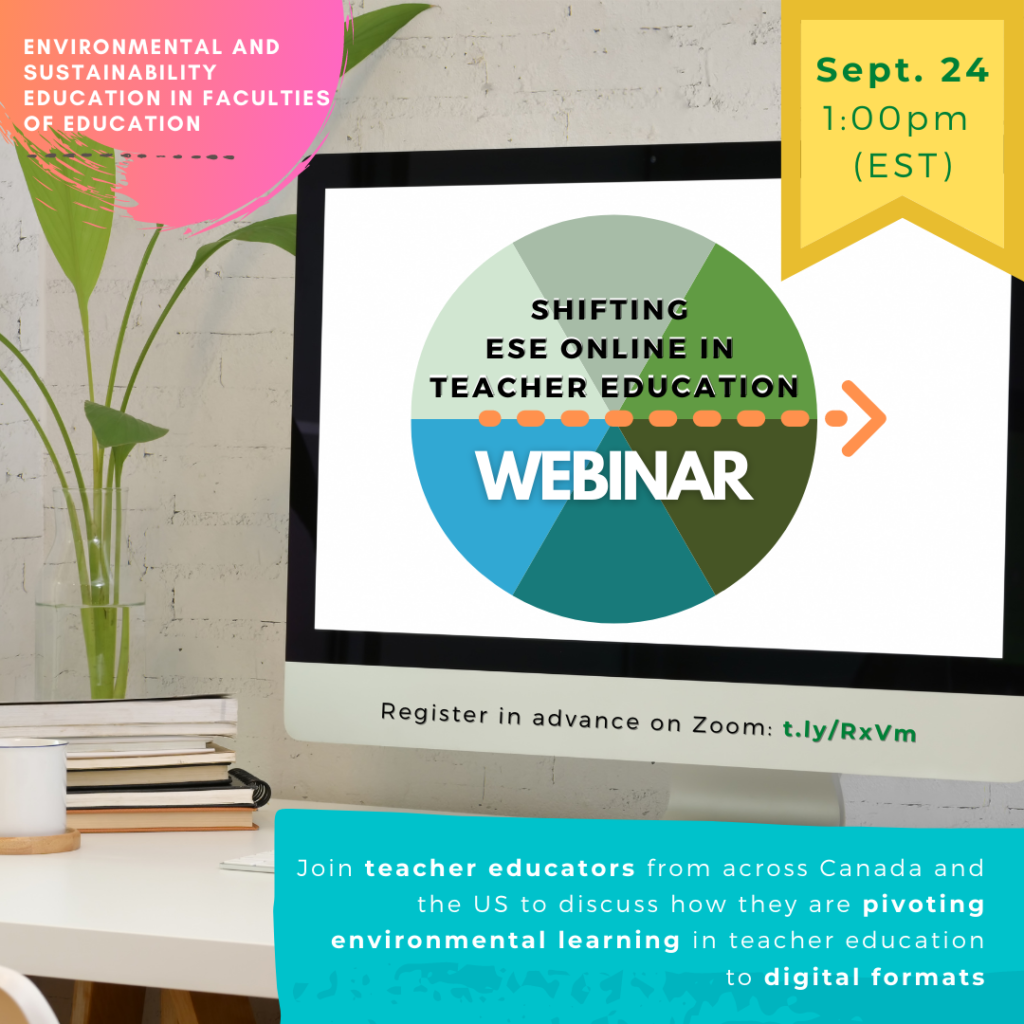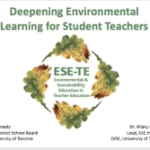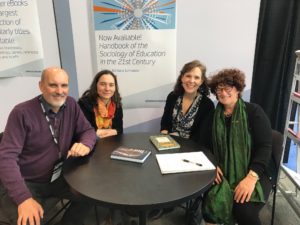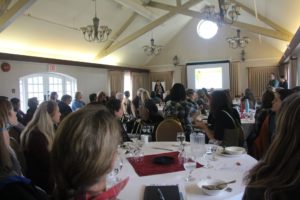
USB students explore the Arctic Topiaries exhibition on the Red River near The Forks, Winnipeg, in February 2019. Made of snow and ice, these warming huts were designed by @michaelmaltzanarchitecture and built by @jakobi_heinrichs in partnership with the Manitoba Inuit Association to celebrate the opening of the Winnipeg Art Gallery (WAG) Inuit Art Centre.
Our What’s happening in ESE at… Series continues:
This week we’re in conversation with Dr. Laura Sims from the Université de Saint-Boniface
By Alysse Kennedy
ESE-TE Project Coordinator
Preparing preservice teachers within Environmental and Sustainability Education (ESE) at the Université de Saint-Boniface (USB) in Winnipeg, Manitoba may look a little different than at other Canadian faculties of education. As the only Francophone university in western Canada, USB places a particular emphasis on linguistic and cultural sustainability.
Tasked with the responsibility of preparing French-language educators in Manitoba as well as the overarching goal to educate for reconciliation, USB’s preservice teacher education program provides mandatory courses to support its teacher candidates. These courses are purposefully related to both the local communities being served and the long-standing cultural context within which the university is inherently steeped. Consequently, at the heart of these courses you’ll find pedagogical approaches that are not only community-focused but also community-based: teaching and learning strategies that address cultural and social aspects of ESE in TE (For more on these pedagogical approaches, see Block, Sims and Beeman, 2016).
Dr. Sims cites using the community as classroom, the community as teacher, using inquiry-based learning and research-based teachings as powerful pedagogical approaches not just for teaching about environmental and social justice concepts but to also engender a deeper context of overall inclusion (for more on inclusion see Sims and Desmarais, 2020). This commitment to inclusion is multifaceted. It includes growing the Francophone community within Manitoba. It includes anti-racist education as the Francophone community is becoming more diverse, with the majority (57%) of new Francophone arrivals being of African descent. Inclusive practices also have a crucial focus on decolonization: an earnest effort is made to focus on fulfilling their Treaty 1 responsibilities (for more on Dr. Sims’ experience teaching this course see Sims, 2019). Courses taught by Dr. Sims integrate ESE in an interdisciplinary way to encourage broader lateral thinking as well as collaboration.
With respect to managing eco-anxiety when dealing with tough topics like the environmental crisis, Dr. Sims strongly feels that community-based learning, using nature as a teacher and promoting agency through inquiry, action-based learning and responsible citizenship help to connect students’ psychological contexts with the environmental. These can foster positive mental health and wellness (for more see Sims, Rocque, and Desmarais, in press). These are aspects tied to inclusion that Dr. Sims believes can help USB’s faculty of education face the environmental crisis in a more meaningful way for their students.
Check out articles mentioned in this post below:
Sims, L., Rocque, R., and Desmarais, M.É. (in press). Enabling students to face the environmental crisis and climate change with resilience: Inclusive environmental and sustainability education approaches and strategies for coping with eco-anxiety. International journal of higher education and sustainability.
Check out more articles related to teaching from USB’s Dr. Laura Sims below:
Check out this recorded webinar on strategies for helping students cope with eco-anxiety (available in French and English):
English version of webinar:
Desmarais, M.-É., Sims, L. and Rocque, R. (2020, august). Helping Students Cope with Eco-anxiety: 11 Strategies Educators can Use. [Video]. Loom. https://www.loom.com/share/c3808b71512a4bf8a90765570df00fca
French version of webinar:
Desmarais, M.-É., Sims, L. et Rocque, R. (2020, août).Aider les élèves à faire face à l’écoanxiété : 11 stratégies à mettre en œuvre. [Vidéo]Loom. https://www.loom.com/share/e2fa6daec23f45058303b0f68974f994
Thank you to Dr. Laura Sims for participating in an interview.
